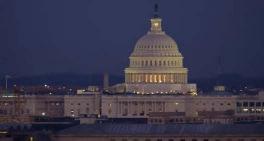High court denies Kentucky religious school’s plea to reopen
Legal Analysis
The Supreme Court on Thursday refused to block an order by Kentucky Gov. Andy Beshear that bars in-person K-12 education until early January in areas hard hit by COVID-19, rejecting a plea from a private religious school.
The court said in an unsigned opinion that Beshear’s order will effectively expire at the end of the week anyway because schools are about to begin their Christmas vacation and can open again in early January. A ruling against the state “would have little practical effect,” the court said.
Justices Samuel Alito and Neil Gorsuch dissented. Gorsuch noted that the governor issued a separate order allowing “virtually all other in-person activities to continue with only capacity restrictions. Movie theaters, indoor wedding venues, bowling alleys, and gaming halls remained open for business.”
The Danville Christian Academy had sued Beshear after he announced the closures in November in response to increased cases of COVID-19 around the state. His order applied to both public and private schools. The county that Danville Christian Academy is located in has one of the highest coronavirus incidence rates in the state, at 113.6 cases per 100,000 residents.
The school said it was being treated unfairly under Kentucky law and the U.S. Constitution. A district court agreed, blocking the order, but the federal appeals court in Cincinnati, Ohio, allowed Beshear’s order to remain in effect.
Beshear said all schools were treated alike. Speaking at a news conference in Kentucky around the time the court ruled, he said: “In no way were religious schools treated any differently, we asked everybody to make the same sacrifice.”
Kentucky continues to reel from the pandemic. The governor on Thursday announced a record 54 new confirmed COVID-19-related deaths and 3,349 new confirmed coronavirus cases. Hospital capacity for ICU beds is at or above 80% in four parts of the state.
Kelly Shackelford, president and chief counsel of First Liberty Institute, the law firm that represented Danville Christian Academy, vowed to take the governor to court again if the order was reinstated.
“Rest assured, if the Governor does so on Jan 4th, we will file against him immediately,” Shackelford said in a statement.
Kentucky Attorney General Daniel Cameron echoed Shackleford’s warning in a statement Thursday evening, urging the governor to “carefully consider future executive action related to religious schools.”
On Monday, Beshear had announced new public health guidance for in-person learning in counties with high COVID-19 rates. Schools that comply may resume in-person learning on Jan. 11.
Related listings
-
Pennsylvania high court to settle voter signatures fight
Legal Analysis 10/17/2020Pennsylvania’s highest court granted a request Wednesday to wade into a fight over whether counties should count mail-in ballots when a voter’s signature doesn’t necessarily match the one on their registration. In its brief order, t...
-
Shooting outside US court in Phoenix wounds federal officer
Legal Analysis 09/15/2020A drive-by shooting wounded a federal security officer outside the U.S. courthouse in downtown Phoenix on Tuesday, and a person was later taken into custody, authorities said. The officer was taken to a hospital and was expected to recover, according...
-
Thai court issues new arrest warrant for Red Bull scion
Legal Analysis 08/27/2020A Thai court issued a new arrest warrant on Tuesday for an heir to the Red Bull energy drink fortune, a month after news of the dropping of a long-standing charge against him caused widespread anger.Assistant National Police Chief Lt. Gen. Jaruwat Wa...

New York Commercial Litigation Law Firm - Woods Lonergan PLLC
Founded in 1993 by Managing Partner James F. Woods, Woods Lonergan PLLC has built a strong reputation as a resourceful and industrious firm that provides clients with clear, concise, and straightforward answers to their most challenging legal issues. Partner Lawrence R. Lonergan, who joined the firm in 2008, has been a friend and colleague to Mr. Woods for over 40 years and shares the same business philosophy. Woods Lonergan PLLC’s collective experience and expertise enables the firm to expeditiously and effectively analyze the increasing challenges clients face in an evolving business and legal world, in many instances, avoiding unnecessary time and expense to our clients. Our mission is simple: provide cutting-edge expertise and sound advice in select areas of the law for corporate and business clients. We thrive on providing each client with personalized attention, forceful representation, and a collaborative team effort that embraces collective knowledge.


